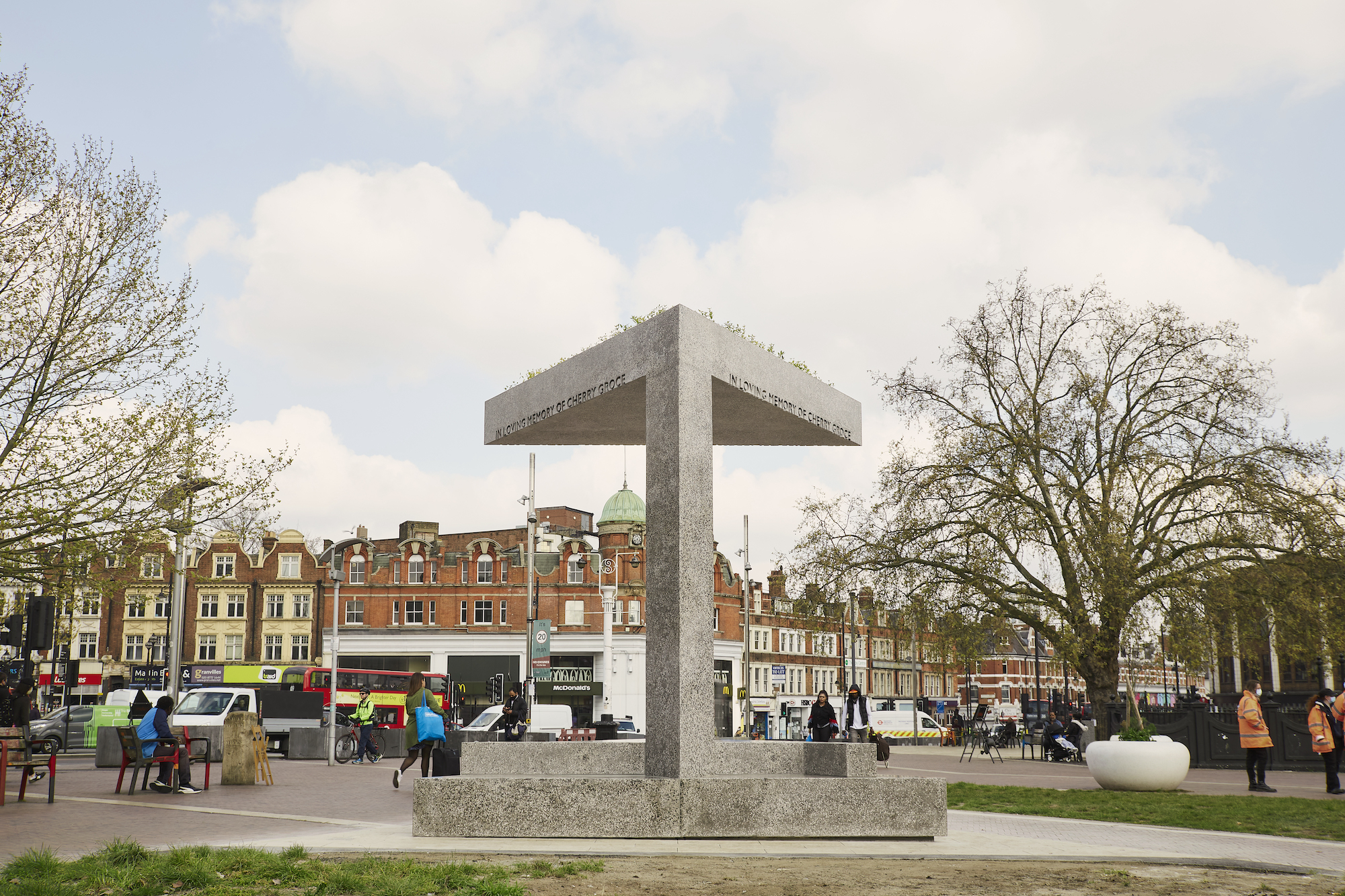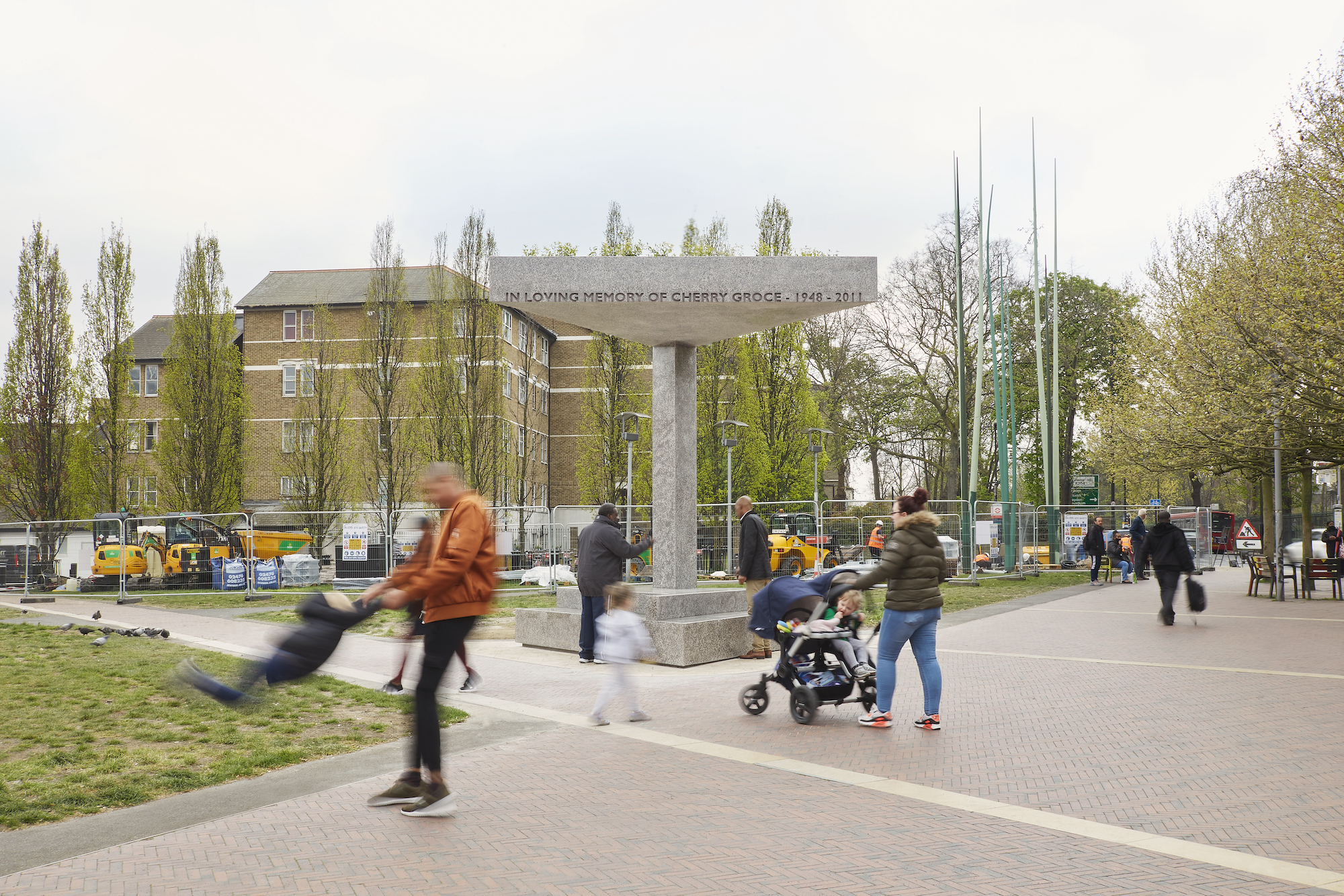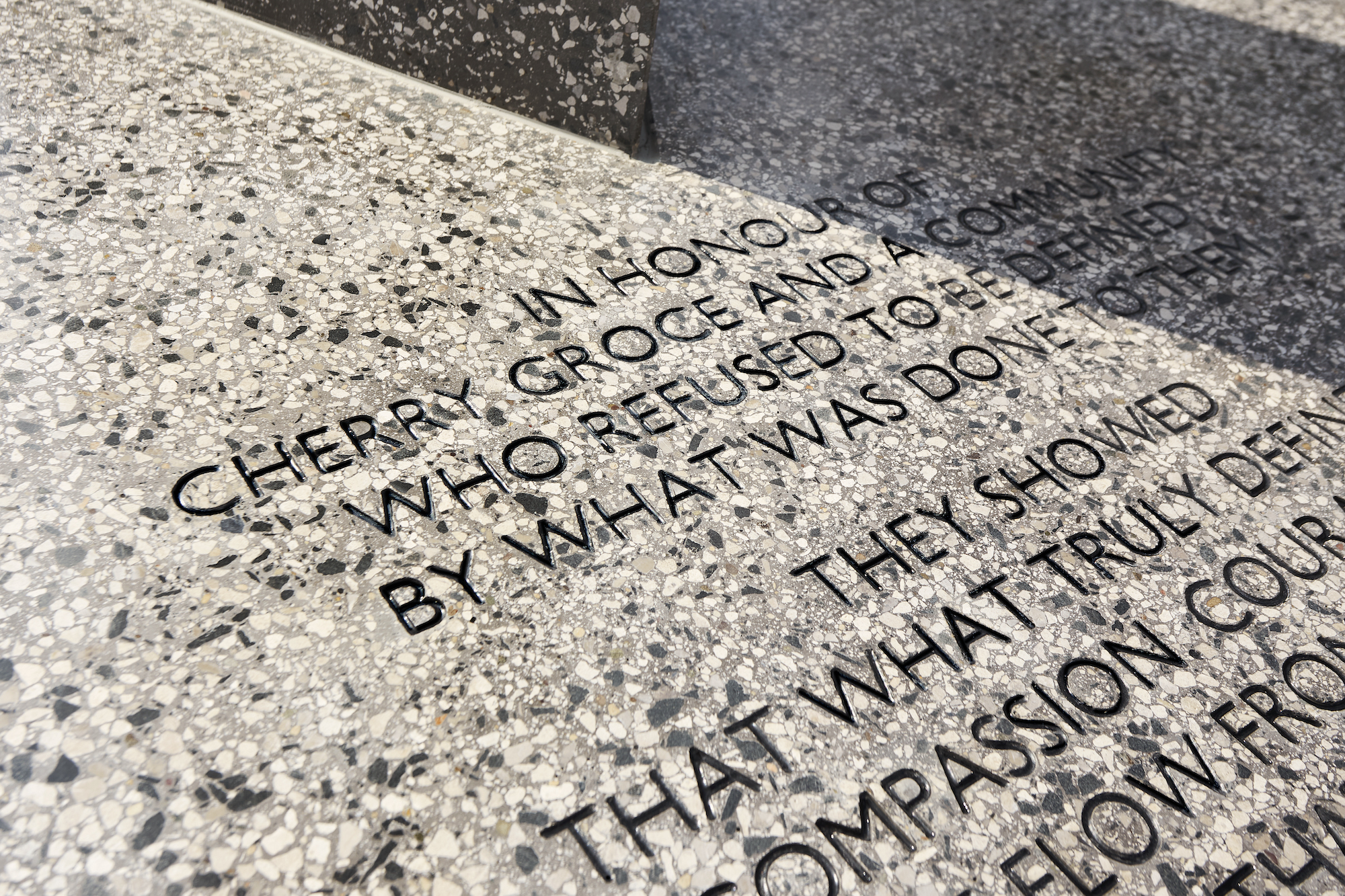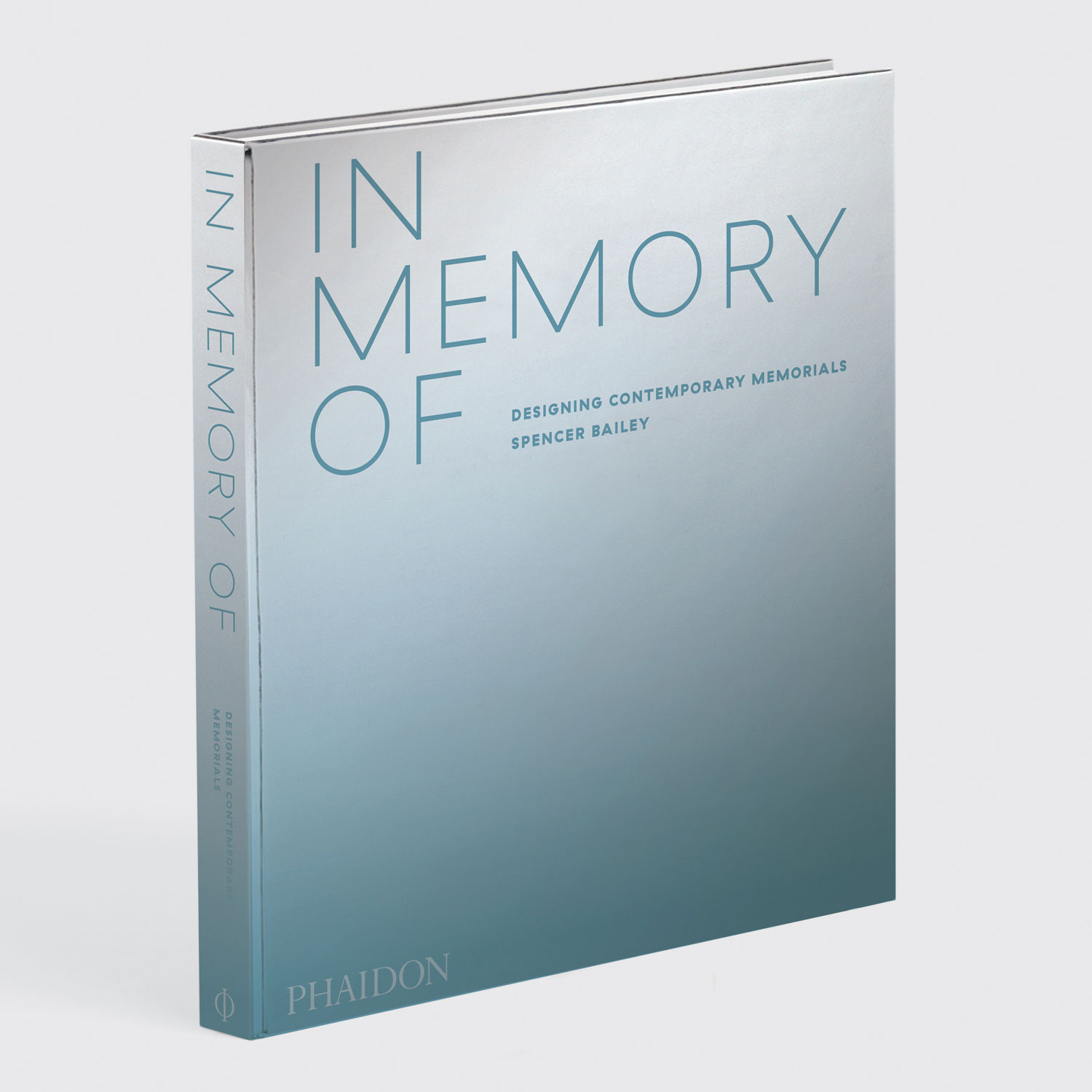
David Adjaye unveils memorial to victim of police shooting
Cherry Groce’s shooting sparked the 1985 Brixton Riots in south London - 35 years later, the architect has created a more fitting legacy
David Adjaye is changing the way we make, and see memorials. In the foreword to our book, In Memory Of, the British Ghanaian architect writes that “the focus of my work is not about the changing of space through an object, but about the way in which we can adjust the context and landscape to encourage a more open form of engagement.” A good example of this shift has just been unveiled in the British capital.
In September 1985 armed police officers raided the home of Dorothy ‘Cherry’ Groce, in Brixton, South London. The police were looking for her son, but during the search they ended up shooting Mrs Groce, leaving the 37-year-old woman paralysed below the waist. That botched raid sparked the 1985 Brixton Riots. Now, over 35 years later, Mrs Groce's legacy is given a more fitting tribute, courtesy of Adjaye’s practice.

Adjaye Associates, working with The Cherry Groce Foundation, has created The Cherry Groce Memorial Pavilion. Situated in Windrush Square, Brixton, it marks Groce’s heritage, her life, and also serves to engage with today’s Brixtonites in an open, non-prescriptive way.
“We designed the memorial to be a pavilion that will be used by the community, in which the canopy speaks to protection and shelter,” explains Adjaye Associates; “the pillar to strength and support; the triangles to the mountains of West Africa and Jamaica in Cherry’s roots. Together, these elements combine to create a memorial that is outward-looking and optimistic, as Cherry was, and the community continues to be.”

While three-and-a-half decades might seem like a long time to wait for a fitting tribute to Groce’s suffering, Adjaye feels it was worth the wait. "I am so happy to celebrate the unveiling of this project and the representation it brings to the black community for Brixton, London, and the UK at large,” Adjaye said. “It is my sincere hope that the restorative justice that is borne from the making of this pavilion can help us all to learn from, and be better neighbours to, each other in the city that we live in.”

For a better understanding of how this important architect’s work is changing memorial building, buy a copy of In Memory Of. For further artistic responses to black grief, take a look at Grief and Grievance.